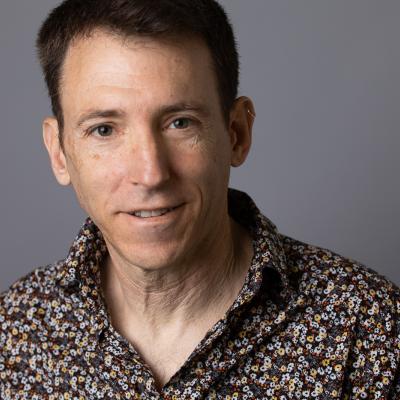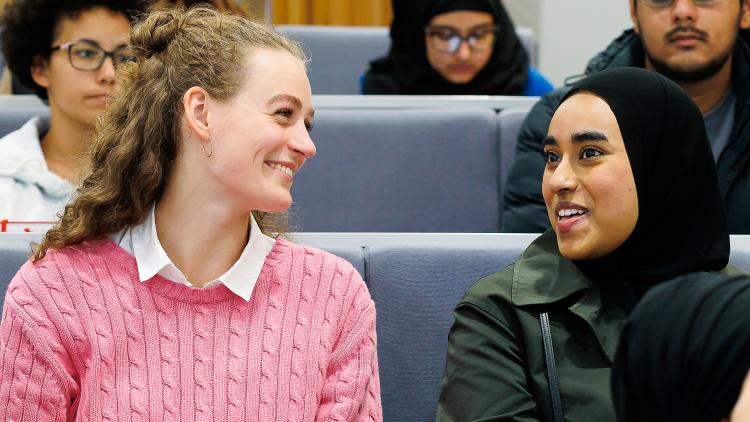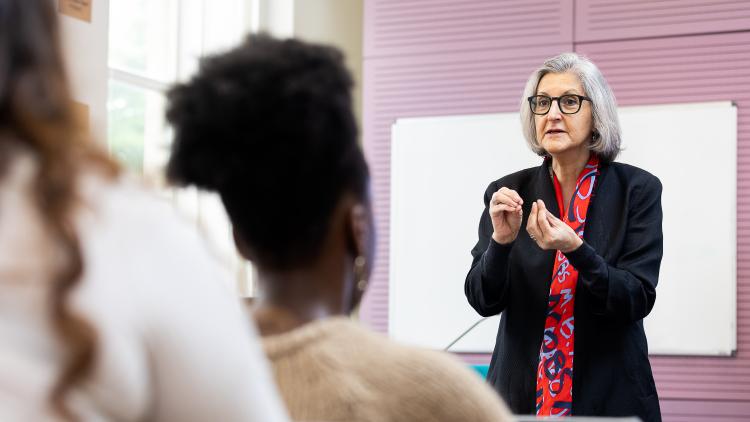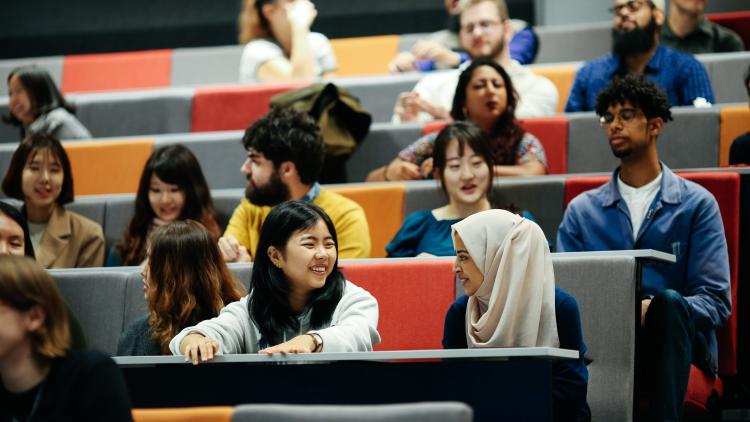Research Degrees (MPhil/PhD) in Translation Studies



Key information
- Duration
- 3 years
- Start of programme
- September
- Attendance mode
- Full-time or part-time
- Location
- Russell Square, College Buildings
- Fees
-
Home student fees (full-time): £4,860 per year
Home student fees (part-time): £2,430 per year
Overseas student fees (full-time): £22,490 per year
Overseas student fees (part-time): £11,245 per yearPlease note that fees go up each year.
See research fees for further details. - Entry requirements
-
We normally require a 2.1 bachelor's degree (or its equivalent) plus a Masters degree in appropriate subject area plus one reference. In exceptional cases we may accept applicants who do not meet these criteria if they show evidence of a strong Masters degree and/or appropriate level of relevant work experience. International applicants should also see Doctoral School English language requirements
Course overview
The MPhil/PhD in Translation Studies is a research training programme which combines foundational and advanced training in the core areas of translation studies, research methods and research work leading to a thesis. The Department is strongly research-oriented, and through a combination of courses, advanced seminars and individual supervision, aims to provide the intellectual discipline, knowledge and skills required of a well-rounded researcher.
Supervision is offered in theoretical, descriptive and comparative, historical translation studies, as well as a wide range of interdisciplinary areas cutting across linguistics, cultural studies, sociological and political field of studies. Depending on the research topic, it may be possible to arrange joint supervision with specialists in other departments.
Research at the Centre for Translation Studies and in the Department of Linguistics
Research interests of the faculty are wide-ranging, spanning the languages across the world, from Chinese to Arabic, Swahili to Korean, Mongolian to Japanese. This focus on Asian and African languages, combined with the unparalleled access to the considerable language and regional expertise of other SOAS researchers constitutes a unique resource for the study of translation studies benefitting from expertise of many leading researchers in the areas of other languages, theoretical, comparative and descriptive linguistics, and area studies, which greatly enrich the field of translation studies.
Modern Languages and Linguistics at SOAS has been ranked 10th in the UK in the Research Excellence Framework (REF) 2021. We've also been ranked 4th for research environment - with 100% of our research ranked as 'internationally excellent' and 85% as 'world-leading' - and 8th for research outputs in the REF 2021.
Structure
The PhD programme in Translation Studies is a rigorous, structured interdisciplinary training programme with different activities and requirements taking place throughout the period of the programme.
All students register in year 1 of the programme as MPhil students. The upgrade from MPhil to PhD registration takes place at the end of the first academic session for full time students (or at the end of the second academic session for part time students).
All new MPhil/PhD students are provided with a supervisory committee of three members, comprising a main or primary supervisor, and a second and third supervisor. The split in time commitment across the supervisory committee is 60:25:15. In the first year students are expected to meet their main supervisor on a bi-weekly basis for a period of at least one hour.
The student’s primary supervisor is either a member of the Linguistic Department, or a member from the department of area studies if they are registered at the Centre for Translation Studies. The second and third supervisors, who act in a supplementary advisory capacity, may be from the same Department, or other Departments/Centres in the Faculty of Languages and Cultures or in Departments/Centres in the other Faculties of the School.
Depending on the nature of the research, joint supervision is sometimes recommended, under the direction of two primary supervisors. In such cases the student has only one further supervisor on their committee.
The student’s progress is further overseen by the Centre's Research Tutor.
In the first year, students prepare for research by following the research training seminar (RTS) offer by the Centre for Translation Studies, Department of Linguistics convened by the Research Tutors, as well as training offered by the Faculty's research programme and supported by the generic training on offer in the Academic Development Directorate (ADD) .
Students may also be encouraged by supervisors to attend additional taught courses relevant to their research and to their training needs. These may include specialist disciplinary, language or regional culture courses or research training in other Departments outside the Faculty.
All MPhil/PhD students are encouraged to attend the talks of the departmental seminar series, or those organised by the Department of Linguistic or the Centre for Translation Studies. In addition, there are special PhD seminars in which advanced PhD students present their work and which are open to staff and students.
Year 1
Year 1 full-time students (year 2 for part-time students) are required to submit a core chapter and research proposal (of about 10,000 words) by first Friday in May, typically including the following elements:
- Research rationale and context of proposed research
- Main research questions
- Literature review
- Theoretical and methodological framework and considerations
- Proposed research methods
- Ethical issues (where applicable)
- Samples of initial data and their analysis
- Outline structure of PhD dissertation
- Schedule of research and writing
- Bibliography
Adjustments to one or more of these sections, including additions or deletions where appropriate, are possible by prior arrangement between the students and lead supervisors.
The upgrade process from MPhil to PhD status is based upon an assessment of the core chapter and research proposal by the student’s research committee, and upon on a 20-30 minute oral presentation, followed by discussion. The oral presentation is given to, supervisory committee members and other Departmental staff and research students. This is followed by an interview of 10-15 minutes between the student and the committee. On successful completion of the upgrade process, students are formally upgraded to PhD and proceed to the second year. (If the assessors consider there to be shortcomings in the core chapter or research proposal, students will be asked to revise it to their satisfaction before the upgrade to PhD status can be confirmed.) Students are not normally permitted to proceed to the second year until the upgrade process has been completed.
Year 2
The second year (or part-time equivalent) is normally spent engaged in research. This may be by any combination of fieldwork and research in libraries and material collection as agreed between the student and the supervisor(s).
Year 3
The third year (or part-time equivalent) is devoted to writing up research for the PhD thesis. During this time, students will normally give a presentation in the PhD seminar series organised by the Research Tutor, which is open to staff members and other research students. During the third year (or part time equivalent) students will present draft chapters to their main supervisor for comment, before completing a final draft of the thesis. Once a full draft is complete, the work is assessed by all members of the supervisory committee and the student can either submit the thesis or move on to Continuation Status to be given a further 12 months to complete the thesis and submit for examination.
The thesis must be completed within 48 months from the time of registration (or part time equivalent).
The thesis – not to exceed 100,000 words in length – is examined by two leading authorities in the field.
PhD Degrees are awarded by SOAS from registration in 2013 and are subject to SOAS regulations.
Important notice
The information on the website reflects the intended programme structure against the given academic session. The modules are indicative options of the content students can expect and are/have been previously taught as part of these programmes. However, this information is published a long time in advance of enrolment and module content and availability is subject to change.
Teaching and learning
Some recent completed theses
- The Influence of Translation on the Arabic Language: A Study on the Translation of English Idioms in Arabic Satellite TV Stations
- Translators and Habitus: An Integrative Approach to Investigating Film Dubbing in China from 1949 to the Present
- An Analysis of Translation Shifts in Thai Translations of English Novels
- A study into the ideological manipulation of translation and translation’s role in affecting the political and social fields: Translation’s function in advancing the war on terror
- An Influential Approach to Translating the Korean Implicit: from a relevance-theoretic perspective
- Contemporary Iranian Theatre in Translation: An Analysis of the Issues at Stake in the
- Translation of Foreign Plays from Conception to Performance
SOAS Library
SOAS Library is one of the world's most important academic libraries for the study of Africa, Asia and the Middle East, attracting scholars from all over the world. The Library houses over 1.2 million volumes, together with significant archival holdings, special collections and a growing network of electronic resources.
Fees and funding
Fees for 2023/24 entrants per academic year
| Home students | Overseas students | |
|---|---|---|
| Full-time | £4,860 | £21,630 |
| Part-time | £2,430 | £10,815 |
Please note that fees go up each year.
See research fees for further details.
Employment
Graduates of the School of Languages, Cultures and Linguistics leave SOAS not only with linguistic and cultural expertise, but also with skills in written and oral communication, analysis and problem solving.
Recent graduates have been hired by:
- Africa Matters
- Amnesty International
- Arab British Chamber of Commerce
- BBC World Service
- British High Commission
- Council for British Research in the Levant
- Department for International Development
- Edelman
- Embassy of Jordan
- Ernst & Young
- Foreign & Commonwealth Office
- Institute of Arab and Islamic Studies
- Middle East Eye
- Saïd Foundation
- TalkAbout Speech Therapy
- The Black Curriculum
- The Telegraph
- United Nations Development Programme
- UNHCR, the UN Refugee Agency
- Wall Street Journal
Find out about our Careers Service












